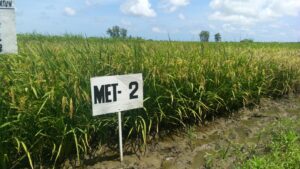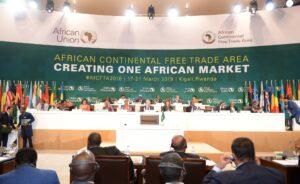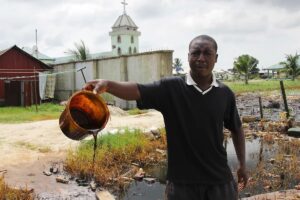- Dawood Al Shezawi: Why AIM Congress 2024 is the epicenter of global economic and cultural dialogues
- d.light’s 600,000 cookstoves project verified as top source of quality carbon credits
- Artificial intelligence (AI) could create a turning point for financial inclusion in Africa
- AIM Congress 2024: Catalysing global investments with awards
- Kenya’s economic resurgence in 2024
- The most stressful cities to live in 2024 exposed
- Tech ventures can now apply for the Africa Tech Summit London Investment Showcase
- State of journalism survey 2024 shows media houses are lagging in AI adoption
Opinion
- Artificial intelligence in Africa can potentially propel the fintech industry into a new era of financial inclusion.
- AI tools can analyse data from client discussions, producing legal documents in simple language and at a fraction of what it would typically take to draft a contract.
- Banks, for example, can make their services more affordable to their customers by rolling out AI-powered chatbots to handle routine queries while sparing them from having to travel to a bank branch.
It’s difficult to imagine a time before the widespread adoption of mobile technology in Africa – particularly where financial services are concerned. For millions of unbanked people, transactions were limited to cash, postal services or even the barter system.
Now, in much the same way as mobile payments completely disrupted the status quo, AI has the potential to propel the fintech industry into a new era of financial inclusion. And perhaps most exciting …
- One of the most important ways a fintech can listen to its customers is to gauge how they engage with its products.
- Having a deep understanding of customer needs results in innovative solutions.
All around the world businesses are pulling out the stops to achieve growth in what can best be described as challenging economic conditions. Africa is no exception. The continent has long been recognised for its immense potential, and as such businesses across sectors are investing heavily into the continent.
Advancements in technology make serving the unbanked and underserved populations in Africa more viable than ever before. However, that does not mean growth comes easily. It is a hyper competitive and complex environment where genuinely understanding your customer is key to growth.
Even with this textbook understanding, there is a strong urge to take the “build it and they will come” approach because we can get caught up …
- Namibia is fortunate to benefit from the experiences of other oil- and gas-producing states.
- The country’s oil and gas sector is still looking forward to reaching the production phase, but S&P Global analysts don’t anticipate Namibia’s first oil production will come until 2029.
- Further, the country’s first gas-to-power project is scheduled to begin in 2027.
Namibia’s energy sector is still looking forward to reaching the production phase — S&P Global analysts don’t anticipate Namibia’s first oil to come until 2029, and the country’s first gas-to-power project is scheduled to begin in 2027.
Ohio State Team Jersey
ohio state jersey
Ohio State Team Jersey
asu jersey
ohio state jersey
Iowa State Football Uniforms
detroit lions jersey
micah parsons jersey
micah parsons jersey
Iowa State Football Uniforms
fsu football jersey
OSU Jerseys
custom football jerseys
asu jersey
Before Namibia achieves these hotly anticipated milestones, Namibian lawmakers can implement thoughtful, …
Most economists see structural transformation as one of the main routes to Africa’s sustainable development. What it means is changing the share of agriculture, manufacturing and services in an economy. It is a central aim of the African Union’s Agenda 2063.
With this aim in mind, economists and policymakers need to know what determines structural transformation. They have flagged factors like demand for goods and services, trade policies, financial development, institutional quality and economic integration.
But researchers haven’t closely examined the way economic integration through trade and finance influences structural transformation.
I therefore set out to study African countries’ integration with the rest of the world and the effect of that integration on their structural transformation. This study provides fresh evidence about whether integration is good for Africa. It also unearths the right levels of integration necessary to increase structural transformation.
Trade and financial integration are both about countries exporting …
COVID-19 has prompted widespread discussion of the resilience of food systems and how efficiency and competitiveness have been previously understood. Recent decades have seen the growth of increasingly complex food value chains. These are underpinned by just-in-time delivery systems, a growing share of food products sold through supermarkets, and increasing concentration of ownership among powerful, large food manufacturers.
The pandemic has further emphasised the need for a more diverse and inclusive food system, in which small and medium sized enterprises (SMEs) play a key role.
As part of a larger project investigating challenges faced by agro-processing SMEs, we conducted qualitative telephone interviews with 16 SME maize milling and dairy firms during lockdown to gauge the effects of the pandemic.
As essential businesses, food manufacturers continued to operate through lockdown, and it might be assumed COVID-19’s impacts on this industry were minimal. This was not the case. While aggregate production levels …
With more than 11 million confirmed cases and over 530,000 deaths globally, the COVID-19 pandemic continues to have a devastating impact around the world. While many countries continue to grapple with the ongoing surge of new cases, the pandemic has offered the opportunity to reflect on the current achievements and challenges of our healthcare systems.
For one, the novel coronavirus has created an unprecedented disruption for healthcare systems, which have had to balance between maintaining ongoing operations, scaling-up infectious disease programmes, supporting healthcare workers, and managing financial stress while supporting their communities. At an institutional level, the pandemic has forced our hospitals, clinics and other health institutions to quickly scale up their clinical, facility and support protocols to provide efficient and meaningful care to those in critical need.
But for health institutions, like Aga Khan Health Services (AKHS), the concept of pandemic response planning is not only built into our …
On the 10th of July 2020, Helios Holdings Limited announced a merger with Fairfax Africa Holdings Corporation to form Helios Fairfax Partners Corporation – a pan Africa focused alternative investment manager.[1] On the same day, Eversend, an African fintech startup also announced over a $1M raise through crowdfunding.[2] Prior to that Helios announced a $100M investment from the Commonwealth Development Corporation (CDC) into their fund IV.[3] On the 1st of July 2020, our portfolio company, www.hotelonline.co announced the acquisition of two travel tech companies.[4] On 30th June 2020, www.msfafrica.com announced the acquisition of fellow fintech Beyonic based in Tanzania.[5] On 23rd June, 2020 www.acumen.org announced their exit from KopaGas of Tanzania as part of the $25M acquisition by Circle Gas.[6] Then on 22nd January 2020, www.mypaga.com announced the acquisition of Apposit an Ethiopian software company as the entry strategy …
Rarely does any so-called “world leader” impress me. Some of them probably mean well in that superior, “I know better than you do what’s good for you” kind of way.
But in the big scheme of things, they are all elected for very short periods of time in office. Australian Prime Ministers get only three years at a time. US Presidents get four, maximum eight years.
In my view, that means they have little or no realistic chance to effect meaningful change for the good and leave their mark, unless they attempt something radical and reckless in the short term, pandering to certain interest groups.
Therein lies the problem. It takes much longer to effect meaningful change.
To cut to the chase, the list of world leaders, or former world leaders who served in my own adult life-time, whom I admire, is pretty short.
There are two:
- Nelson Mandela.

























